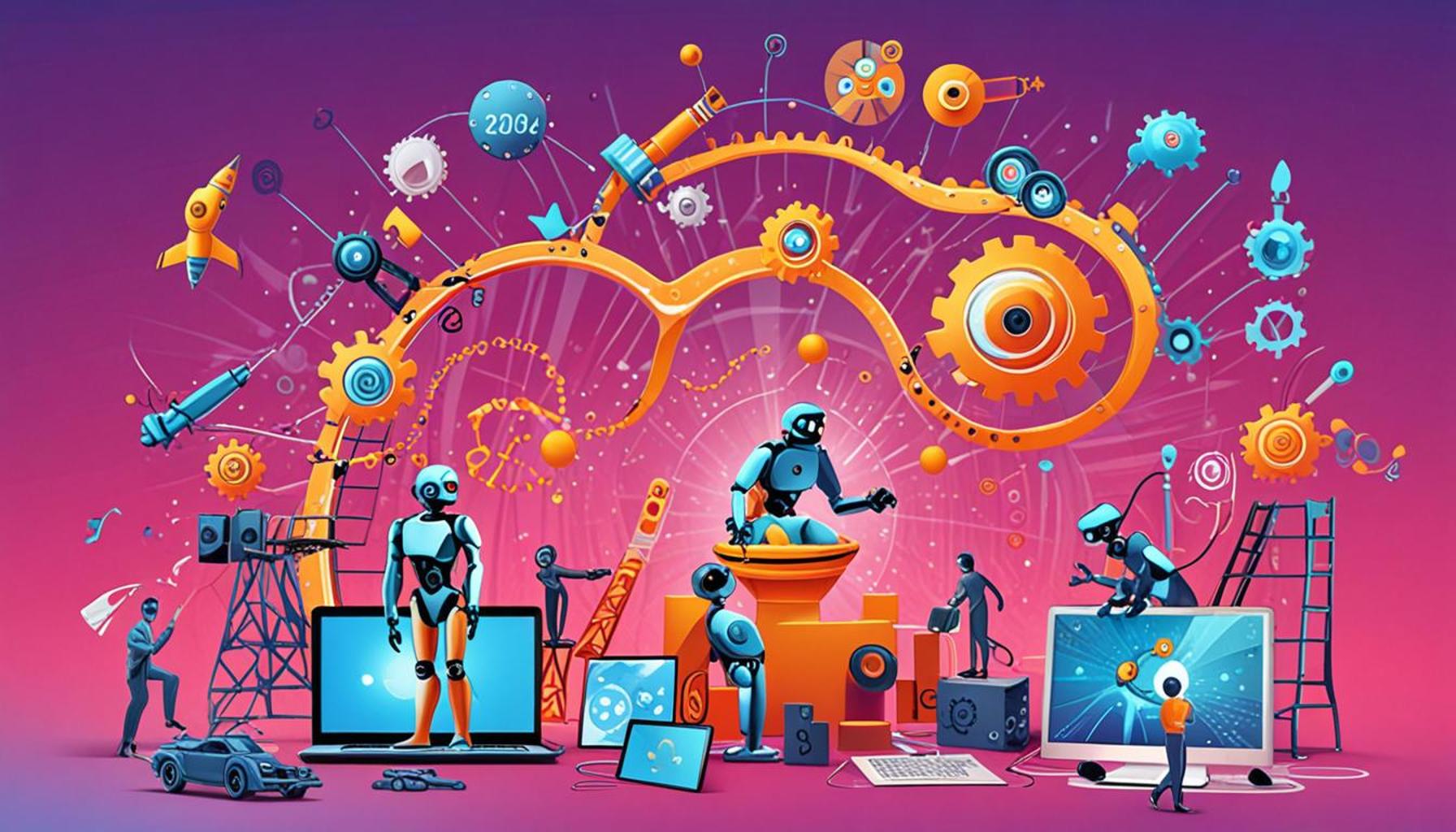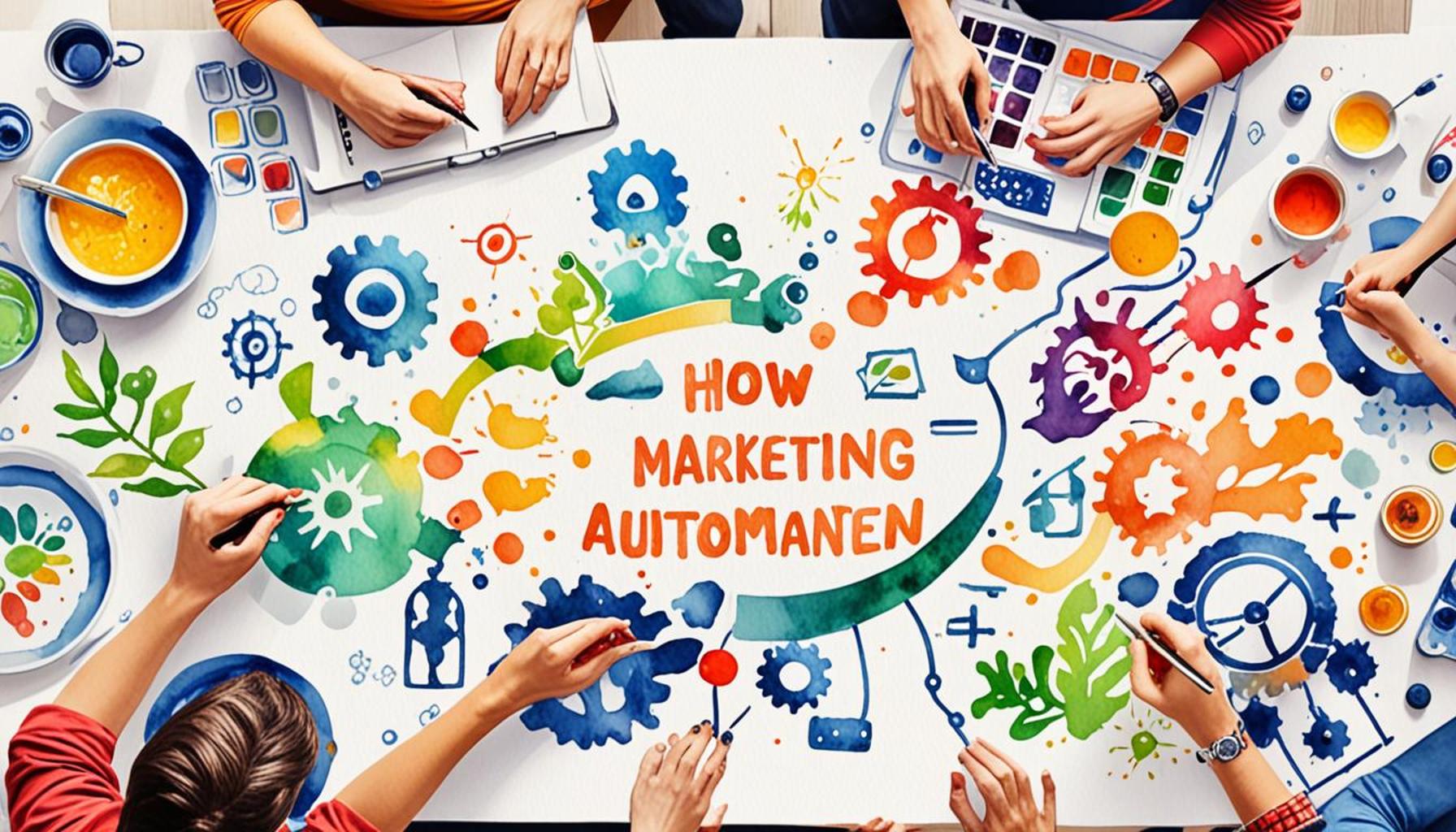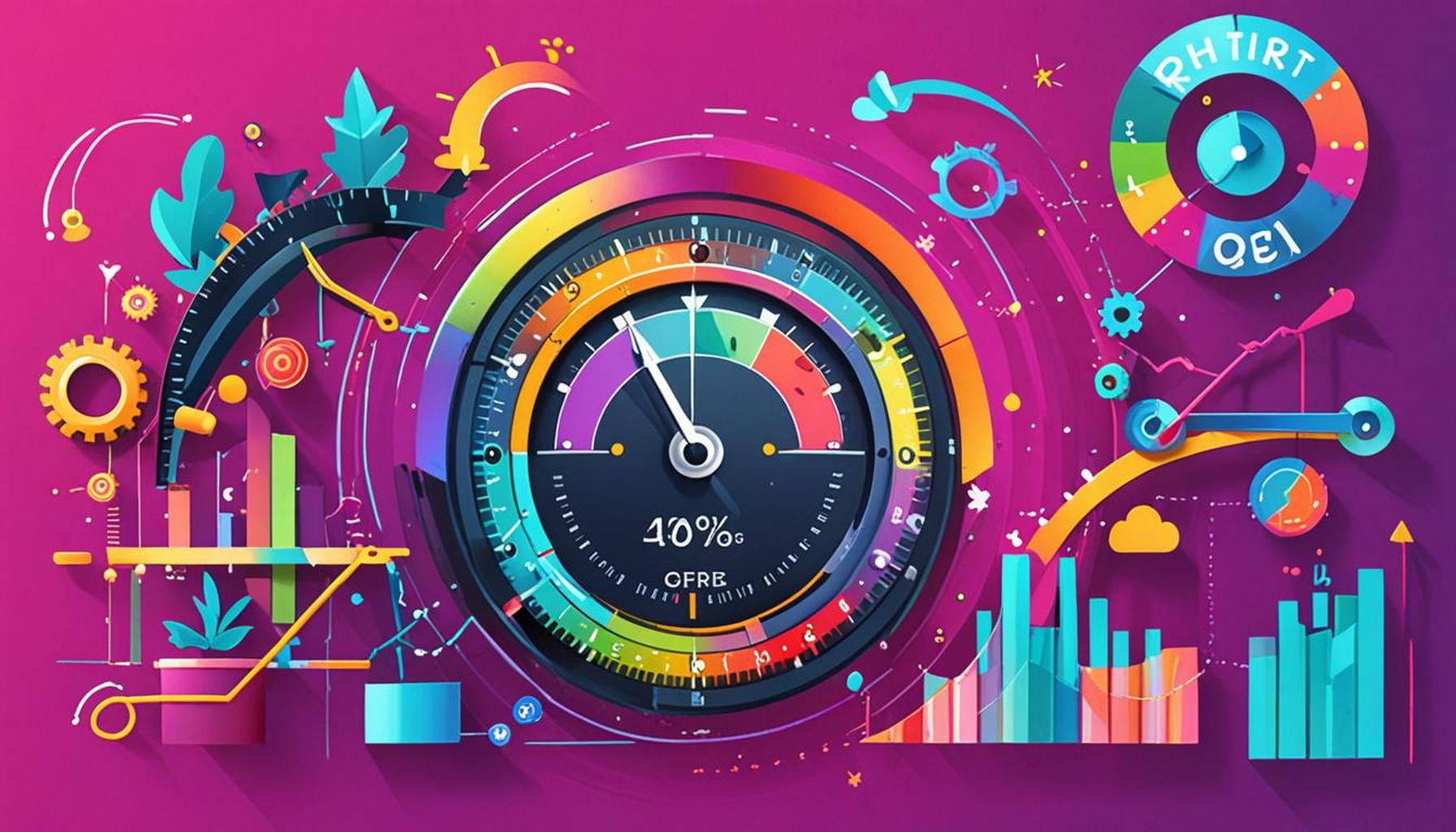The Evolution of Marketing Automation: Trends and Innovations for 2024

Transformative Trends in Marketing Automation
The marketing landscape continues to evolve, with businesses seeking to optimize their operations and enhance customer engagement. As we look toward 2024, several transformative trends and technologies are making waves that promise to reconfigure traditional marketing approaches into data-driven, highly personalized, and seamless experiences for consumers.
One of the most significant drivers of change is the integration of AI and Machine Learning. Companies are leveraging these technologies to extract deeper insights from data, enabling them to predict customer behavior with remarkable accuracy. For example, predictive analytics can guide inventory management and targeted promotions, enhancing operational efficiency. Retail giants like Amazon utilize machine learning algorithms to analyze browsing and purchasing patterns, tailoring recommendations that increase sales and customer satisfaction.
Personalization at Scale is another pivotal trend. As customers demand experiences tailored to their individual preferences, companies will rely more on advanced algorithms to segment audiences and deliver customized content. This goes beyond addressing customers by their first name; it involves curating entire shopping experiences that resonate with their interests. Brands like Netflix and Spotify excel at this, using sophisticated recommendation engines that suggest content based on user engagement, leading to increased viewer retention and satisfaction.
The Integration Across Platforms trend showcases the need for tools that can unify disparate marketing strategies. Businesses can no longer afford to operate in silos. For instance, integrating CRM systems with email marketing platforms allows for cohesive campaigns that can be tracked and adjusted in real-time, enhancing the ability to respond to consumer needs swiftly and effectively.
Navigating the Complexities of Marketing
As digital channels proliferate, the shift toward Data-Driven Decision Making becomes paramount. Companies are increasingly relying on real-time analytics to gauge the effectiveness of their campaigns. Utilizing platforms that provide actionable insights from data enables brands to pivot strategies that are underperforming and to amplify those that resonate well with audiences.
Moreover, the practice of Multi-Channel Marketing ensures a wider reach, allowing businesses to connect with consumers across various touchpoints, including social media, email, and in-store experiences. A synchronized approach can lead to a more cohesive brand message and increases the likelihood of engagement.
Ultimately, mastering the art of Customer Journey Mapping is essential for understanding consumer behavior. By analyzing every interaction a customer has with a brand, businesses can identify pain points and optimize the overall experience. Techniques like user journey mapping and feedback loops are instrumental in driving customer retention, as they provide insights that help brands refine their offerings continuously.
In conclusion, as we move into 2024, embracing these marketing automation trends will be crucial for businesses eager to stay at the forefront of customer engagement and operational excellence. By diving deeper into these areas, companies can identify opportunities for improvement and innovation, positioning themselves to thrive in a competitive landscape.
LEARN MORE: This related article may interest you
Revolutionizing Campaign Strategies
As the marketing automation landscape transforms, businesses are re-evaluating their approach to engage with consumers more effectively. In 2024, new trends and innovations will reshape how organizations develop campaign strategies, leaning heavily on Customer-Centric Approaches. Brands are increasingly recognizing the importance of putting the customer at the heart of their marketing initiatives. This involves crafting experiences that are not only memorable but also resonate with individual customer journeys.
The emergence of Dynamic Content Creation is pivotal in this shift. Businesses are now embracing the capability to create real-time, tailored messaging that adapts based on user interactions. For instance, an online retailer could show different promotions based on a customer’s browsing history, ensuring they see offers that are relevant to their interests. According to a recent report, 74% of consumers feel frustrated when website content is not personalized, highlighting the necessity for brands to leverage this trend effectively.
Another key innovation is the rise of Chatbots and Conversational Marketing. These AI-driven solutions enable brands to engage customers in real-time, providing instant responses to inquiries, thus enhancing the customer experience. As more and more consumers prefer quick, direct communication, integrating chatbots into marketing strategies can lead to improved customer satisfaction and loyalty. A study by HubSpot found that businesses using chatbots for customer engagement have seen a 70% increase in conversion rates.
Emerging Technologies Driving Change
Innovations in Voice Search Optimization are also at the forefront of marketing automation advancements. With the increasing prevalence of smart speakers and voice-enabled devices, businesses need to rethink their SEO strategies to cater to voice search. In fact, reports predict that by 2024, over 50% of all online searches will be conducted using voice. This means that effective marketing automation tools will need to ensure that content is optimized for voice queries, allowing brands to maintain visibility in this shifting landscape.
- Predictive Analytics: Helps anticipate customer needs and behaviors, allowing for more efficient targeting.
- Augmented Reality (AR): Offers immersive experiences that let customers visualize products in their environments.
- Blockchain Technology: Provides enhanced security and transparency in digital marketing transactions.
Moreover, the integration of Social Commerce is becoming indispensable. As consumers increasingly turn to social platforms for shopping, incorporating shopping capabilities directly into social media channels is now essential for brands. Companies like Instagram and TikTok are leading the charge by enabling users to discover and purchase products without leaving the app, a trend that is set to gain even more traction in 2024.
Ultimately, as marketing automation continues to evolve, companies must embrace these innovative strategies to stay relevant and competitive. Understanding the profound impact of technology on consumer engagement will empower brands to craft more efficient, impactful campaigns that not only reach but resonate with their target audiences.
As we delve deeper into the evolution of marketing automation, it is essential to explore the transformative trends reshaping this dynamic field. In 2024, we anticipate the rise of Artificial Intelligence (AI) and Machine Learning (ML)</strong) as pivotal tools for developing advanced marketing strategies. These technologies enable businesses to analyze consumer behavior with unprecedented accuracy, optimizing campaign effectiveness.
Furthermore, the integration of Omnichannel Marketing will become crucial, allowing brands to create seamless customer experiences across various platforms. This approach not only enhances customer engagement but also strengthens brand loyalty by ensuring a unified message and interaction style.
The emergence of personalization will also play a significant role. As more data becomes available, marketers will harness this information to deliver tailored content, effectively meeting the diverse needs of consumers. This empowers businesses to make data-driven decisions and adopt a more targeted approach, driving higher conversion rates.
In addition, the use of Marketing Automation Tools will streamline workflows and enhance productivity. These tools are becoming increasingly sophisticated, enabling marketers to automate complex tasks such as lead scoring, email segmentation, and social media scheduling. By freeing up valuable time, marketers can focus on creativity and strategy while the technology manages the logistics.
Finally, the integration of Blockchain technology into marketing automation systems promises increased transparency and security, especially concerning data privacy and consumer trust. As regulations surrounding data become stricter, firms adopting blockchain will have a competitive edge by demonstrating their commitment to protecting customer information.
| Category | Advantages |
|---|---|
| AI & ML Integration | Enhances consumer behavior analysis for better targeting |
| Omnichannel Marketing | Creates seamless customer experiences, boosting loyalty |
| Personalization | Tailors content to meet diverse consumer needs |
| Automation Tools | Streamlines workflows, allowing focus on strategy |
| Blockchain Technology | Increases transparency and enhances consumer trust |
These trends and innovations herald an exciting era for marketing automation, making it crucial for businesses to stay abreast of developments to leverage these advancements effectively.
YOU MAY ALSO LIKE: Read read another article
Embracing Data-Driven Decision Making
The significance of data in marketing automation cannot be overstated. As businesses dive deeper into the digital realm, the ability to leverage Big Data Analytics will become increasingly vital for enhancing decision-making processes. In 2024, organizations that effectively harness vast amounts of customer data will find themselves at a competitive advantage. This rise in data utilization allows marketers to uncover valuable insights about customer behavior, preferences, and trends. By employing advanced algorithms, brands can tailor their strategies to meet ever-evolving consumer demands.
One of the key themes in the evolution of marketing automation is the concept of Hyper-Personalization. This goes beyond traditional personalization techniques, enabling brands to deliver unique, individualized experiences to their customers. With emerging machine learning technologies, businesses can analyze data in real-time and craft communications that reflect a customer’s specific actions and context. Think of a customer who previously purchased a hiking backpack; they might receive a personalized email recommending a nearby hiking trail alongside related gear discounts. According to research from Salesforce, 76% of consumers expect companies to understand their needs and expectations, emphasizing the urgency for hyper-personalized strategies.
The Role of AI and Machine Learning
Artificial intelligence (AI) and machine learning are fundamental in redefining marketing automation’s landscape. Businesses are increasingly adopting Predictive Marketing, where AI analyzes historical data to make future predictions about consumer behavior. This approach allows companies to engage with potential customers proactively, optimizing outreach based on growth forecasts and preferences. Reports indicate that predictive analytics can boost marketing ROI by as much as 15-25%, showcasing its potent impact.
In addition, the usage of Sentiment Analysis is set to skyrocket. By analyzing customer feedback and interactions across various platforms, brands can gauge public sentiment about their products and services. Tools that employ natural language processing can help decipher consumer emotions, enabling brands to adapt their strategies swiftly. This capability will be crucial in mitigating negative responses and reinforcing positive experiences, thus enhancing customer loyalty.
- Marketing Attribution: As companies expand their marketing channels, accurate attribution models will become essential in identifying which campaigns perform best and where to allocate resources effectively.
- Integration of Augmented Analytics: These tools empower marketers to autonomously glean insights from their data, minimizing reliance on data scientists while enabling faster decision-making.
- AI-Powered Content Generation: Brands may increasingly use AI to generate coherent copy for various marketing channels, streamlining the content creation process and reducing costs.
As organizations pivot towards a more integrated approach, the demand for Omnichannel Marketing will dominate. Consumers expect a seamless experience as they transition across different channels, whether online or offline. Brands that effectively automate messaging across multiple touchpoints—including email, SMS, social media, and websites—will foster more cohesive customer journeys. Furthermore, a diverse omnichannel strategy can drive customer retention by offering consistent value, thus enabling brands to maintain a strong competitive edge.
As these trends and innovations unfold, businesses will need to equip themselves with the latest automation tools to adapt to evolving consumer demands. Understanding emerging technologies and their implications for marketing strategies will be pivotal for brands looking to thrive in 2024 and beyond. With consumers becoming increasingly discerning, leveraging data-driven insights and AI enhancements can ultimately lead to more effective marketing executions that resonate on a personal level.
YOU MAY ALSO LIKE: Read read another article
Conclusion
As we look ahead to 2024, it is abundantly clear that marketing automation is set to transform in unprecedented ways, fueled by advancements in artificial intelligence, Big Data analytics, and evolving consumer expectations. The landscape of digital marketing is rapidly changing, and organizations that adapt to these shifts will reap the benefits of enhanced engagement and loyalty.
The integration of hyper-personalization techniques will be paramount, allowing brands to connect with customers on a deeper level. By harnessing the power of predictive marketing and sentiment analysis, companies can tailor their messages not just to individual preferences, but also to the ever-changing dynamics of the marketplace. As research shows, consumers are not just passive recipients—they demand authenticity and relevance in every interaction.
Moreover, the significance of an omnichannel approach cannot be overstated. Brands that seamlessly engage with their audience across various platforms will cultivate lasting relationships, ultimately enhancing customer retention and driving growth. With businesses eager to adopt automation tools that streamline operations and decision-making, the race will be on to not only innovate but to remain agile in meeting the consumers’ needs.
As we navigate these trends and innovations, it will be crucial for marketers to continuously evaluate and refine their strategies. Organizations that invest in cutting-edge technology and remain attuned to consumer behaviors will not just succeed—they will lead in a rapidly evolving digital landscape. The future of marketing isn’t just about automation; it’s about creating meaningful connections in a data-driven world.


